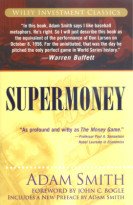Mr. Buffett: "Why do you charge 2 and 20?"
Hedge fund manager: "Because I can't get 3 and 30."
The Dow surpassed 12,000 a few weeks back without the fanfare one may have expected. The hoopla surrounding Dow 10,000 was curiously absent this time around. The recent advance seems orderly and justified.
Still, some are partying hard, maybe too hard, on Wall Street these days. The $1.2 trillion hedge fund industry and the $1 trillion private equity folks are going bananas. The Hedgies are making fancy trades and the Barbarians are accepting lower returns while loading on the debt. Where this will all end is anybody’s guess.
To be sure there are signs that the system is beginning to cleanse itself. The recent implosion of various high profile hedge funds may be the beginning. Amaranth went down in flames playing around with natural gas and others are closing shop, taking a break or getting hammered by placing wrong bets on bonds and direction of interest rates. How people expect to consistently return 20% or 30% or 50% to their investors in beyond me when some of the best investors of our time have been happy beating the market by a handful of percentage points over time. It amazes me when people tell me such and such hedge fund is up 50% year to date. At that rate, the fund manager should displace Mr. Gates on the Forbes richest people in the world in no time. Brace yourselves.
 I recently finished reading Adam Smith’s (George J.W. Goodman) Supermoney. I wish I had read this book before the .com bubble burst. The environment of the late 60s was eerily similar to the late 90s. Companies with negligible or nonexistent earnings were going public and trading at crazy multiples. Money managers were promising outsized returns. The accumulation of supercurrency – stocks and options – was the name of the Game. It all ended badly with the 1973 – 1974 bear market. In a July 1999 Book Review article in the New York Times Mr. Smith wrote:
I recently finished reading Adam Smith’s (George J.W. Goodman) Supermoney. I wish I had read this book before the .com bubble burst. The environment of the late 60s was eerily similar to the late 90s. Companies with negligible or nonexistent earnings were going public and trading at crazy multiples. Money managers were promising outsized returns. The accumulation of supercurrency – stocks and options – was the name of the Game. It all ended badly with the 1973 – 1974 bear market. In a July 1999 Book Review article in the New York Times Mr. Smith wrote:
Within living memory, a billion dollars was real money. We can see why - if not when - our own trillion-dollar bubble will pop: even though the Internet itself will grow as a mighty force, if the market will give a billion-dollar value to a two-year-old company losing money, then the efforts of a diligent populace will be put to creating such companies, until the supply of those companies overwhelms the demand for them. The seasons turn and all the rivers flow into the sea. We read these histories and we know the ending. Yet such is the intensity and excitement of manias that they never lack for participants.
Good call indeed. Incidentally, Supermoney has the distinction of being the first book to introduce Mr. Buffett to the world. At the time, Benjamin Graham had approached Mr. Smith to work on a new edition of The Intelligent Investor which led Mr. Smith to visit a so-called Warren Buffett in
A leading investment manager of a billion dollar fund had delivered himself of a statement that money management was a full-time job, not only week by week and day by day; “Securities must be studied on a minute by minute program.”
“Wow!”
It gets better. Perhaps not surprisingly, the teachings of Benjamin Graham were in question by the hotshot money managers of the time. Mr. Buffett’s response in a letter to Smith:
“Graham’s teachings,” he wrote, “have made a number of people rich, and it is difficult to find any cases where those teachings have made anyone poor. There are not many men you can say that about.”
We all know who has had the last laugh some 25 years later!
All of which brings us back to the Hedgies and the Barbarians. I don’t know how all this will end. To be sure, the markets seem to be absorbing the shocks quite well. The Amaranth news barely put a dent in the market and other hedge funds are undeterred. And word is that the private equity players really know what they are doing this time around. But it all makes me uneasy. The Game we play in pursuit of supercurrency is taking place in a continuously evolving arena and is all about accumulation of wealth. To play the Game right, you must take advantage of the follies of Mr. Market and you must have a long-term contrarian perspective on things without getting caught up in the emotional roller coaster of the moment. In the meantime, in the words of Adam Smith, “If you are still for the Game, why, may you prosper; I wish you the joys of it.”

No comments:
Post a Comment